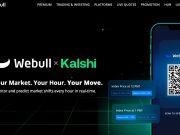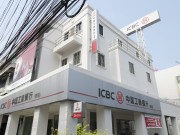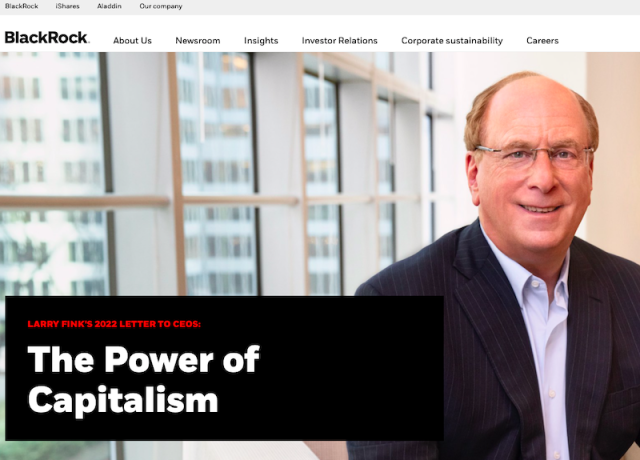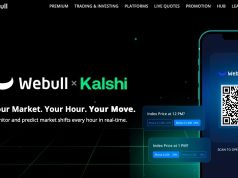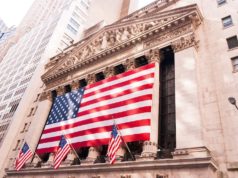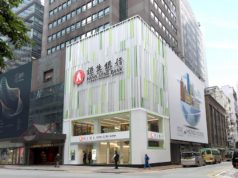BlackRock Chairman Larry Fink Letter to CEO 2022: The Power of Capitalism
5th February 2022 | Hong Kong
BlackRock Chairman Larry Fink Letter to CEO 2022: The Power of Capitalism. Every year, BlackRock Chairman & CEO Larry Fink writes a letter to CEOs on behalf of BlackRock’s clients, who are shareholders of invested companies. Read BlackRock Chairman & CE Larry Fink’s letter to CEOs in 2022, titled: The Power of Capitalism below:
” BlackRock Chairman Larry Fink Letter to CEO 2022: The Power of Capitalism “
BlackRock Chairman Larry Fink Letter to CEO 2022: The Power of Capitalism

Dear CEO,
Each year I make it a priority to write to you on behalf of BlackRock’s clients, who are shareholders in your company. The majority of our clients are investing to finance retirement. Their time horizons can span decades.
The financial security we seek to help our clients achieve is not created overnight. It is a long-term endeavor, and we take a long-term approach. That is why, for the past decade, I have written to you, as CEOs and Chairs of the companies our clients are invested in. I write these letters as a fiduciary for our clients who entrust us to manage their assets – to highlight the themes that I believe are vital to driving durable long-term returns and to helping them reach their goals.
When my partners and I founded BlackRock as a startup 34 years ago, I had no experience running a company. Over the past three decades, I’ve had the opportunity to talk with countless CEOs and to learn what distinguishes truly great companies. Time and again, what they all share is that they have a clear sense of purpose; consistent values; and, crucially, they recognize the importance of engaging with and delivering for their key stakeholders. This is the foundation of stakeholder capitalism.
Stakeholder capitalism is not about politics. It is not a social or ideological agenda. It is not “woke.” It is capitalism, driven by mutually beneficial relationships between you and the employees, customers, suppliers, and communities your company relies on to prosper. This is the power of capitalism.
In today’s globally interconnected world, a company must create value for and be valued by its full range of stakeholders in order to deliver long-term value for its shareholders. It is through effective stakeholder capitalism that capital is efficiently allocated, companies achieve durable profitability, and value is created and sustained over the long-term. Make no mistake, the fair pursuit of profit is still what animates markets; and long-term profitability is the measure by which markets will ultimately determine your company’s success.
At the foundation of capitalism is the process of constant reinvention – how companies must continually evolve as the world around them changes or risk being replaced by new competitors. The pandemic has turbocharged an evolution in the operating environment for virtually every company. It’s changing how people work and how consumers buy. It’s creating new businesses and destroying others. Most notably, it’s dramatically accelerating how technology is reshaping life and business. Innovative companies looking to adapt to this environment have easier access to capital to realize their visions than ever before. And the relationship between a company, its employees, and society is being redefined.
COVID-19 has also deepened the erosion of trust in traditional institutions and exacerbated polarization in many Western societies. This polarization presents a host of new challenges for CEOs. Political activists, or the media, may politicize things your company does. They may hijack your brand to advance their own agendas. In this environment, facts themselves are frequently in dispute, but businesses have an opportunity to lead. Employees are increasingly looking to their employer as the most trusted, competent, and ethical source of information – more so than government, the media, and NGOs.
That is why your voice is more important than ever. It’s never been more essential for CEOs to have a consistent voice, a clear purpose, a coherent strategy, and a long-term view. Your company’s purpose is its north star in this tumultuous environment. The stakeholders your company relies upon to deliver profits for shareholders need to hear directly from you – to be engaged and inspired by you. They don’t want to hear us, as CEOs, opine on every issue of the day, but they do need to know where we stand on the societal issues intrinsic to our companies’ long-term success.
“ Putting your company’s purpose at the foundation of your relationships with your stakeholders is critical to long-term success. “
Putting your company’s purpose at the foundation of your relationships with your stakeholders is critical to long-term success. Employees need to understand and connect with your purpose; and when they do, they can be your staunchest advocates. Customers want to see and hear what you stand for as they increasingly look to do business with companies that share their values. And shareholders need to understand the guiding principle driving your vision and mission. They will be more likely to support you in difficult moments if they have a clear understanding of your strategy and what is behind it.
A new world of work
No relationship has been changed more by the pandemic than the one between employers and employees. The quit rate in the US and the UK is at historic highs. And in the US, we are seeing some of the highest wage growth in decades. Workers seizing new opportunities is a good thing: It demonstrates their confidence in a growing economy.
While turnover and rising pay are not a feature of every region or sector, employees across the globe are looking for more from their employer – including more flexibility and more meaningful work. As companies rebuild themselves coming out of the pandemic, CEOs face a profoundly different paradigm than we are used to. Companies expected workers to come to the office five days a week. Mental health was rarely discussed i
n the workplace. And wages for those on low and middle incomes barely grew.
That world is gone.
Workers demanding more from their employers is an essential feature of effective capitalism. It drives prosperity and creates a more competitive landscape for talent, pushing companies to create better, more innovative environments for their employees – actions that will help them achieve greater profits for their shareholders. Companies that deliver are reaping the rewards. Our research shows that companies who forged strong bonds with their employees have seen lower levels of turnover and higher returns through the pandemic.
Companies not adjusting to this new reality and responding to their workers do so at their own peril. Turnover drives up expenses, drives down productivity, and erodes culture and corporate memory. CEOs need to be asking themselves whether they are creating an environment that helps them compete for talent. At BlackRock we are doing the same: working with our own employees to navigate this new world of work.
Creating that environment is more complex than ever and reaches beyond issues of pay and flexibility. In addition to upending our relationship with where we physically work, the pandemic also shone a light on issues like racial equity, childcare, and mental health – and revealed the gap between generational expectations at work. These themes are now center stage for CEOs, who must be thoughtful about how they use their voice and connect on social issues important to their employees. Those who show humility and stay grounded in their purpose are more likely to build the kind of bond that endures the span of someone’s career.
At BlackRock, we want to understand how this trend is impacting your industry and your company. What are you doing to deepen the bond with your employees? How are you ensuring that employees of all backgrounds feel safe enough to maximize their creativity, innovation, and productivity? How are you ensuring your board has the right oversight of these critical issues? Where and how we work will never be the same as it was. How is your company’s culture adapting to this new world?
New sources of capital fueling market disruption
Over the past four decades, we have seen an explosion in the availability of capital. Today, global financial assets total $400 trillion. This exponential growth brings with it risks and opportunities for investors and companies alike, and it means that banks alone are no longer the gatekeepers to funding.
Young, innovative companies have never had easier access to capital. Never has there been more money available for new ideas to become reality. This is fueling a dynamic landscape of innovation. It means that virtually every sector has an abundance of disruptive startups trying to topple market leaders. CEOs of established companies need to understand this changing landscape and the diversity of available capital if they want to stay competitive in the face of smaller, more nimble businesses.
BlackRock wants to see the companies we invest in for our clients evolve and grow so that they generate attractive returns for decades to come. As long-term investors, we are committed to working with companies from all industries. But we too must be nimble and ensure our clients’ assets are invested, consistent with their goals, in the most dynamic companies – whether startups or established players – with the best chances at succeeding over time. As capitalists and as stewards, that’s our job.
I believe in capitalism’s ability to help individuals achieve better futures, to drive innovation, to build resilient economies, and to solve some of our most intractable challenges. Capital markets have allowed companies and countries to flourish. But access to capital is not a right. It is a privilege. And the duty to attract that capital in a responsible and sustainable way lies with you.
Capitalism and sustainability
Most stakeholders – from shareholders, to employees, to customers, to communities, and regulators – now expect companies to play a role in decarbonizing the global economy. Few things will impact capital allocation decisions – and thereby the long-term value of your company – more than how effectively you navigate the global energy transition in the years ahead.
It’s been two years since I wrote that climate risk is investment risk. And in that short period, we have seen a tectonic shift of capital. Sustainable investments have now reached $4 trillion. Actions and ambitions towards decarbonization have also increased. This is just the beginning – the tectonic shift towards sustainable investing is still accelerating. Whether it is capital being deployed into new ventures focused on energy innovation, or capital transferring from traditional indexes into more customized portfolios and products, we will see more money in motion.
Every company and every industry will be transformed by the transition to a net zero world. The question is, will you lead, or will you be led?
In a few short years, we have all watched innovators reimagine the auto industry. And today, every car manufacturer is racing toward an electric future. The auto industry, however, is merely on the leading edge – every sector will be transformed by new, sustainable technology.
Engineers and scientists are working around the clock on how to decarbonize cement, steel, and plastics; shipping, trucking, and aviation; agriculture, energy, and construction. I believe the decarbonizing of the global economy is going to create the greatest investment opportunity of our lifetime. It will also leave behind the companies that don’t adapt, regardless of what industry they are in. And just as some companies risk being left behind, so do cities and countries that don’t plan for the future. They risk losing jobs, even as other places gain them. The decarbonization of the economy will be accompanied by enormous job creation for those that engage in the necessary long-term planning.
The next 1,000 unicorns won’t be search engines or social media companies, they’ll be sustainable, scalable innovators – startups that help the world decarbonize and make the energy transition affordable for all consumers. We need to be honest about the fact that green products often come at a higher cost today. Bringing down this green premium will be essential for an orderly and just transition. With the unprecedented amount of capital looking for new ideas, incumbents need to be clear about their pathway succeeding in a net zero economy. And it’s not just startups that can and will disrupt industries. Bold incumbents can and must do it too. Indeed, many incumbents have an advantage in capital, market knowledge, and technical expertise on the global scale required for the disruption ahead.
Our question to these companies is: what are you doing to disrupt your business? How are you preparing for and participating in the net zero transition? As your industry gets transformed by the energy transition, will you go the way of the dodo, or will you be a phoenix?
“ We focus on sustainability not because we’re environmentalists, but because we are capitalists and fiduciaries to our clients. “
We focus on sustainability not because we’re environmentalists, but because we are capitalists and fiduciaries to our clients. That requires understanding how companies are adjusting their businesses for the massive changes the economy is undergoing. As part of that focus, we are asking companies to set short-, medium-, and long-term targets for greenhouse gas reductions. These targets, and the quality of plans to meet them, are critical to the long-term economic interests of your shareholders. It’s also why we ask you to issue reports consistent with the Task Force on Climate-related Financial Disclosures (TCFD): because we believe these are essential tools for understanding a company’s ability to adapt for the future.
The transition to net zero is already uneven with different parts of the global economy moving at different speeds. It will not happen overnight. We need to pass through shades of brown to shades of green. For example, to ensure continuity of affordable energy supplies during the transition, traditional fossil fuels like natural gas will play an important role both for power generation and heating in certain regions, as well as for the production of hydrogen.
The pace of change will be very different in developing and developed countries. But all markets will require unprecedented investment in decarbonization technology. We need transformative discoveries on a level with the electric light bulb, and we need to foster investment in them so that they are scalable and affordable.
As we pursue these ambitious goals – which will take time – governments and companies must ensure that people continue to have access to reliable and affordable energy sources. This is the only way we will create a green economy that is fair and just and avoid societal discord. And any plan that focuses solely on limiting supply and fails to address demand for hydrocarbons will drive up energy prices for those who can least afford it, resulting in greater polarization around climate change and eroding progress.
Divesting from entire sectors – or simply passing carbon-intensive assets from public markets to private markets – will not get the world to net zero. And BlackRock does not pursue divestment from oil and gas companies as a policy. We do have some clients who choose to divest their assets while other clients reject that approach. Foresighted companies across a wide range of carbon intensive sectors are transforming their businesses, and their actions are a critical part of decarbonization. We believe the companies leading the transition present a vital investment opportunity for our clients and driving capital towards these phoenixes will be essential to achieving a net zero world.
“ Capitalism has the power to shape society and act as a powerful catalyst for change ”
Capitalism has the power to shape society and act as a powerful catalyst for change. But businesses can’t do this alone, and they cannot be the climate police. That will not be a good outcome for society. We need governments to provide clear pathways and a consistent taxonomy for sustainability policy, regulation, and disclosure across markets. They must also support communities affected by the transition, help catalyze capital for the emerging markets, and invest in the innovation and technology that will be essential to decarbonizing the global economy.
It was the partnership between government and the private sector that led to the development of COVID-19 vaccines in record time. When we harness the power of both the public and private sectors, we can achieve truly incredible things. This is what we must do to get to net zero.
Empowering clients with choice on ESG votes
Stakeholder capitalism is all about delivering long-term, durable returns for shareholders. And transparency around your company’s planning for a net zero world is an important element of that. But it’s just one of many disclosures we and other investors ask companies to make. As stewards of our clients’ capital, we ask businesses to demonstrate how they’re going to deliver on their responsibility to shareholders, including through sound environmental, social, and governance practices and policies.
In 2018, I wrote that we would double the size of our stewardship team and it remains the largest in the industry. We’ve built this team so we can understand your company’s progress throughout the year, not just during proxy season. It’s up to you to chart your own course and to tell us how you’re moving forward. We seek to understand the full range of issues that you face, not just the ones on the ballot – and that includes your long-term strategy.
Just as other stakeholders are adjusting their relationships with companies, many people are rethinking their relationships with companies as shareholders. We see a growing interest among shareholders – including among our own clients – in the corporate governance of public companies.
That is why we are pursuing an initiative to use technology to give more of our clients the option to have a say in how proxy votes are cast at companies their money is invested in. We now offer this option to certain institutional clients, including pension funds that support 60 million people. We are working to expand that universe.
We are committed to a future where every investor – even individual investors – can have the option to participate in the proxy voting process if they choose.
We know there are significant regulatory and logistical hurdles to achieving this today, but we believe this could bring more democracy and more voices to capitalism. Every investor deserves the right to be heard. We will continue to pursue innovation and work with other market participants and regulators to help advance this vision toward reality.
Of course, many corporate leaders are responsible for overseeing equity assets, whether through employee pension funds, corporate treasury accounts, or other investments your company makes. I encourage you to ask that your asset manager gives you the opportunity to participate in the proxy voting process more directly.
BlackRock’s Investment Stewardship team remains core to our fiduciary approach, and many of our clients prefer that the team continues to engage and execute voting on their behalf. But fundamentally, clients should at least be given the choice and chance to participate in voting more directly.
Our conviction at BlackRock is that companies perform better when they are deliberate about their role in society and act in the interests of their employees, customers, communities, and their shareholders.
However, we also believe that there is still much to learn about how a company’s relationship with stakeholders impacts long-term value. That’s why we are launching a Center for Stakeholder Capitalism, to create a forum for research, dialogue, and debate. It will help us to further explore the relationships between companies and their stakeholders and between stakeholder engagement and shareholder value. We will bring together leading CEOs, investors, policy experts, and academics to share their experience and deliver their insights.
Delivering on the competing interests of a company’s many divergent stakeholders is not easy. As a CEO, I know this firsthand. In this polarized world, CEOs will invariably have one set of stakeholders demanding that we do one thing, while another set of stakeholders demand that we do just the opposite.
That is why it is more important than ever that your company and its management be guided by its purpose. If you stay true to your company’s purpose and focus on the long term, while adapting to this new world around us, you will deliver durable returns for shareholders and help realize the power of capitalism for all.
Sincerely,
Larry Fink
Chairman and Chief Executive Officer
Laurence D. Fink is Founder, Chairman and Chief Executive Officer of BlackRock. He and seven partners founded BlackRock in 1988, and under his leadership, the firm has grown into a global leader in investment and technology solutions. BlackRock’s mission is to help investors build better financial futures and the firm is trusted to manage more money than any other investment company in the world. Mr. Fink has been named one of the “World’s Greatest Leaders” by Fortune, and Barron’s has named him one of the “World’s Best CEOs” for 15 consecutive years.
Prior to founding BlackRock in 1988, Mr. Fink was a member of the Management Committee and a Managing Director of The First Boston Corporation. He serves as a member of the Board of Trustees of New York University (NYU) and the World Economic Forum, and is Co-Chairman of the NYU Langone Medical Center Board of Trustees. In addition, he serves on the boards of the Museum of Modern Art, the Council on Foreign Relations and the International Rescue Committee. He also serves on the Advisory Board of the Tsinghua University School of Economics and Management in Beijing and on the Executive Committee of the Partnership for New York City. Mr. Fink earned an MBA with a concentration in real estate from the University of California at Los Angeles (UCLA) in 1976 and a BA in political science from UCLA in 1974.
Sign Up / Register
Caproasia Users
- Manage $20 million to $3 billion of assets
- Invest $3 million to $300 million
- Advise institutions, billionaires, UHNWs & HNWs
Caproasia Platforms | 11,000 Investors & Advisors
- Caproasia.com
- Caproasia Access
- Caproasia Events
- The Financial Centre | Find Services
- Membership
- Family Office Circle
- Professional Investor Circle
- Investor Relations Network
Monthly Roundtable & Networking
Family Office Programs
The 2025 Investment Day
- March - Hong Kong
- March - Singapore
- July - Hong Kong
- July - Singapore
- Sept- Hong Kong
- Sept - Singapore
- Oct- Hong Kong
- Nov - Singapore
- Visit: The Investment Day | Register: Click here
Caproasia Summits
- The Institutional Investor Summit
- The Investment / Alternatives Summit
- The Private Wealth Summit
- The Family Office Summit
- The CEO & Entrepreneur Summit
- The Capital Markets Summit
- The ESG / Sustainable Investment Summit



